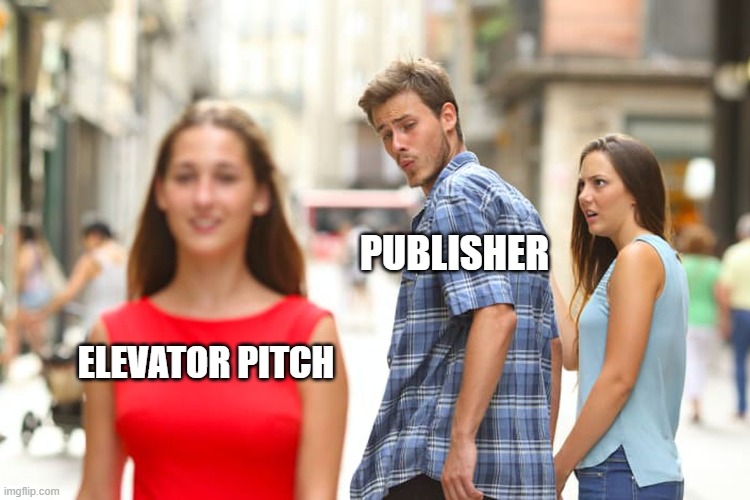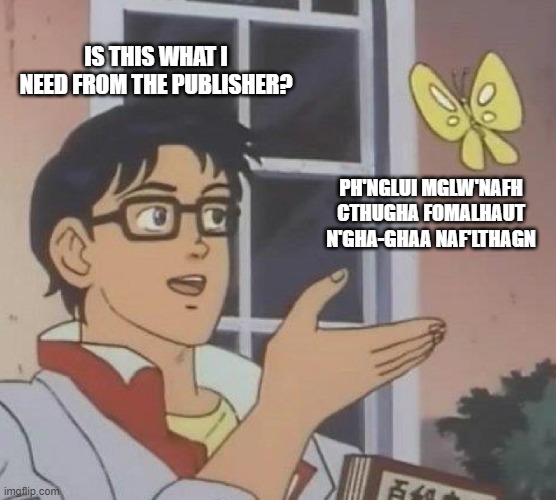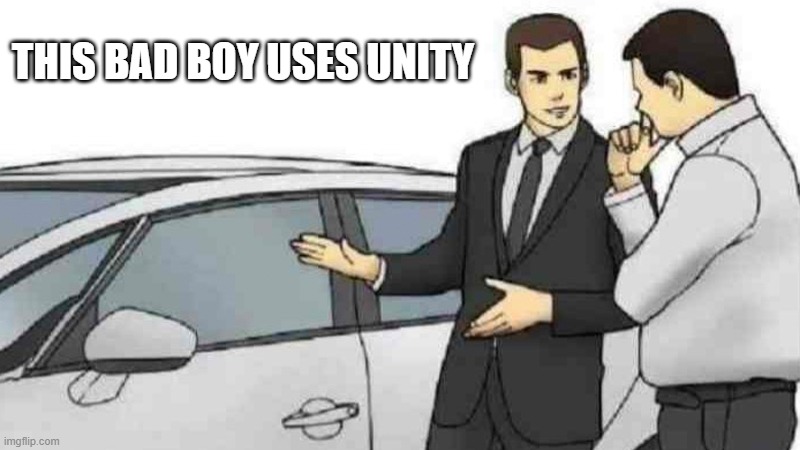Top Mistakes to Avoid When Pitching Your Game to a Publisher
You’ve probably read lots of tips for pitching a video game already. As a publishing house receiving hundreds of pitches, we’ve gained lots of experience with them and we’ve identified different mistakes that can result in failing the pitching stage. Avoiding them will help you increase the chance of having your video game pitch reviewed and potentially accepted by a publisher.
Without further ado, let’s look at some of the key mistakes to avoid when pitching from Alessandro Bovenzi, our Business Relations Developer here at All in! Games.
1. No elevator pitch.

It’s good to include an elevator pitch at the beginning, that is to say a short, succinct description that explains what the game is about and what genre it covers, familiar elements (inspirations), and twists (what differentiates it from other games).
If a few slides in we still don’t have an idea of what this game is about, it might turn us off. Keep in mind that publishers tend to see and review hundreds of pitches a year, so you need to grab our attention immediately and leave us wanting to ask for more rather than overload us with unnecessary information.
2. Poorly prepared Unique Selling Point (USP).
One of the things we often see is a mismatch between the USPs described in your pitch and what is playable in the prototype. This is very common, and we totally understand that financial help is often needed to get you to a vertical slice stage, or even prototyping the main mechanics, but you should be mindful of this. Expect more questions from us in those areas that you’re not able to showcase in a build and make sure you can discuss these topics at least from a design perspective.
Sometimes there is no mention of USPs in the presentation deck at all or it’s poorly presented. Make sure that you pay attention to this section—Unique Selling Proposition is something that makes your game stand out. What makes it unique? Why would people buy it? You need to answer this question. Check out Game Marketing Genie for more details about USPs.
A successful USP doesn’t need to be super complicated. On the contrary, it should be straight to the point. For example, a USP of one of our games Red Wings: American Aces is:
| The only arcade warplane shooter with online multiplayer. |
3. Lack of visual assets representing your game.
Ideally, we’d like to see what style you’re going for. Please do not use art from other IPs in the presentation unless it’s for a specific example you want to refer to—make it clear when that’s the case. We understand that elements are a work in progress at this stage, but you should make sure that everything is clear and transparent.
We want to see your concept art, actual visuals from the game (if you have them), scenery, and characters.
4. Poorly researched competition.
Competitors and inspirations behind your game will help us understand it better. Publishers will do their own research, but if you refer to similar titles as examples of previous success, don’t just list the best-known outliers. We all dream big, but e.g., not every farm/sim-life game can be as big as Stardew Valley. At the same time, don’t be afraid to get inspired by your competitors—if their idea worked for them, it may work for you.
Knowing the competition helps you realize your possibilities and place in the market. Maybe it’ll turn out your game perfectly fits an untapped niche, which is a great argument in favor of a publishing deal.
5. Lack of clarity about your needs.

Be upfront and clear about your needs. Financial support and time to develop your game are the obvious necessities, but most of the time there’s a range of services publishers can offer, and we want to know what you are looking for in a partner—we’re in this together.
Also, when listing your budget requirements, make sure to be clear about what is included and what isn’t (e.g., localization, VO, QA, porting).
In addition, cooperation with a publisher isn’t one-sided. Make sure you make it clear what kind of involvement you’re expecting and trust the publisher to deliver. When your goals are clearly stated, the cooperation is much smoother.
6. No company background.
Include a very brief summary of your company background and your team’s experience. This is very important especially if the scope and features of the game you’re developing are quite ambitious. Let us know who you are and why you feel confident in this project.
In addition, this information can be used later to catch marketing and PR attention. Maybe there’s something interesting about the team that would be an advantage to the project—it would help set you up for different opportunities like grants, special events, interviews, etc.
7. No technological information.
Make sure to include technical information about your game, such as what engine you’re using. This is often critical to understanding the feasibility of porting to other platforms, and whether there are additional licensing costs. You can also let us know if you plan to port the game yourself or if you need our help with that. If your game offers multiplayer mode—or will at some point—include your infrastructure plans too. Are you going to use P2P or servers?
Mentioning other software you’re using is a nice addition too. You can name the coding language you use or tools, such as SpeedTree.

8. Grammar or spelling mistakes.
When your pitch is ready, make sure you take your time to proofread it before sending it to us. Spelling mistakes or messy parts will be regarded as unprofessional, while in reality, they are easy to avoid even with online resources, such as Grammarly.
Don’t worry about not being a native speaker, but be open about it. After all, your game is more important than linguistic errors.
9. Unrealistic plans.
It’s important to include a clear and realistic budget and timeline in your pitch. It doesn’t matter how ambitious your goals are if you can’t achieve them—consider your abilities and make a down-to-earth plan. After all, meeting deadlines will make the cooperation smoother.
Showing that you understand the balance between costs and a realistic level of success can help you too.
10. (Extra) No GIFs.
They aren’t required, but we love GIFs! They say a picture is worth a thousand words—if so, a GIF is worth ten thousand words. This is not essential, but if you do have any cool game mechanics or a vibrant style you want to showcase, GIFs can easily drive excitement. After all, we’re gamers too!
Do you have your own tips for pitching a video game to share with everyone? Join our Discord and let us know.